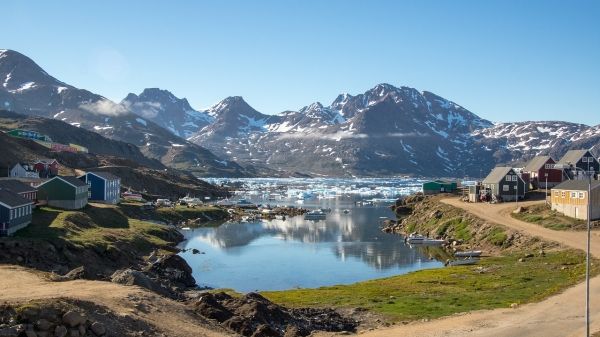As the ice sheet covering most of Greenland retreats, Florida State University researchers are studying the newly revealed landscape to understand its role in the carbon cycle.
FSU researchers Anne Kellerman, a postdoctoral researcher in the Department of Earth, Ocean, and Atmospheric Science, and Associate Professor Robert Spencer explored the composition of dissolved organic carbon in the lakes and streams on the island and found that the newly thawed landscape was feeding these bodies of water with rich carbon sources. This dissolved organic carbon that forms the basis of the microbial food web was then degraded by the intense sunlight that comes during the summer months in Greenland. Their findings were published in Limnology and Oceanography .
Knowing that the landscape is an important driver of the carbon found in the lakes affects the predictions scientists make about the future of the climate there and the types of life these environments may support.
“This was a first step toward making projections as the ice sheet retreats in Greenland, and what that means for carbon cycling, especially in aquatic environments in the region,” Spencer said.
Read more at Florida State University
Photo Credit: Taken via Pixabay


